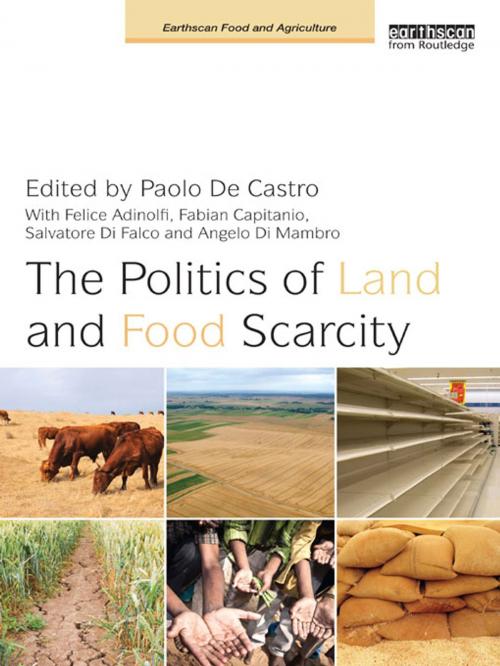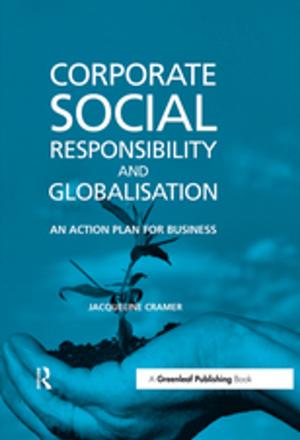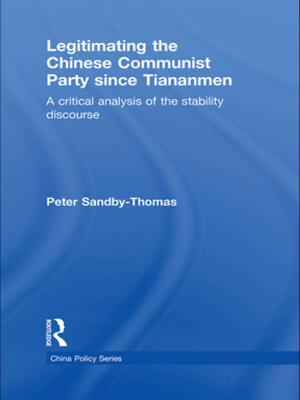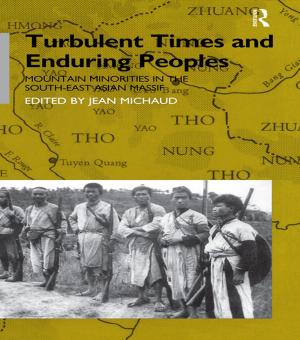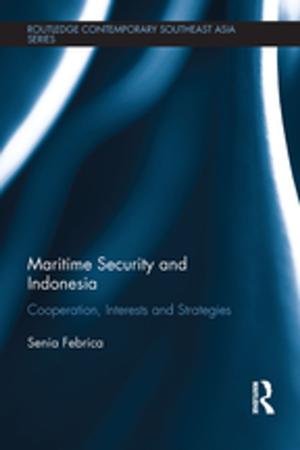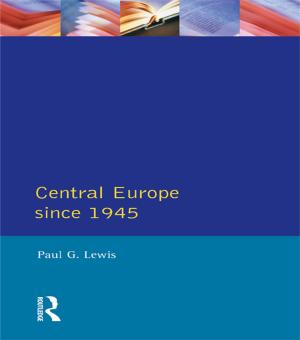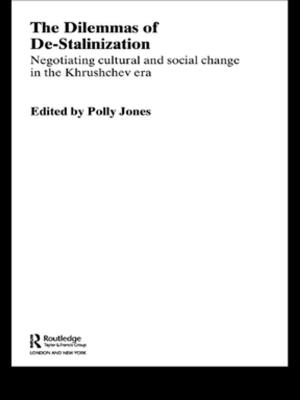The Politics of Land and Food Scarcity
Nonfiction, Science & Nature, Technology, Agriculture & Animal Husbandry, Social & Cultural Studies, Political Science, Government, Public Policy, Business & Finance, Industries & Professions, Industries| Author: | ISBN: | 9781136189654 | |
| Publisher: | Taylor and Francis | Publication: | November 12, 2012 |
| Imprint: | Routledge | Language: | English |
| Author: | |
| ISBN: | 9781136189654 |
| Publisher: | Taylor and Francis |
| Publication: | November 12, 2012 |
| Imprint: | Routledge |
| Language: | English |
In recent years the issue of food security has become centre stage in the global agenda. Since the 2007/8 food price crisis, a number of works have been published on the topic, addressed from various perspectives: economic, social and cultural, environmental, agronomic and climate change. Very rarely is there a comprehensive approach, which also includes the crucial issue of politics.
Through a multidisciplinary approach, this book provides an overview of the new global challenges connected with land, food supply and agriculture. It also contributes to engagement in a new global food policy, through a political analysis of land and food scarcity, including 'land grabs' by affluent countries in poorer nations. It does not simply raise the debate; rather it aspires to move forward the debate that has started with the G20 meetings. It discusses how national governments, local agricultural policies and supranational entities are facing the new scenario of feeding a growing population when land resources are limited and subject to competing claims.
In recent years the issue of food security has become centre stage in the global agenda. Since the 2007/8 food price crisis, a number of works have been published on the topic, addressed from various perspectives: economic, social and cultural, environmental, agronomic and climate change. Very rarely is there a comprehensive approach, which also includes the crucial issue of politics.
Through a multidisciplinary approach, this book provides an overview of the new global challenges connected with land, food supply and agriculture. It also contributes to engagement in a new global food policy, through a political analysis of land and food scarcity, including 'land grabs' by affluent countries in poorer nations. It does not simply raise the debate; rather it aspires to move forward the debate that has started with the G20 meetings. It discusses how national governments, local agricultural policies and supranational entities are facing the new scenario of feeding a growing population when land resources are limited and subject to competing claims.
